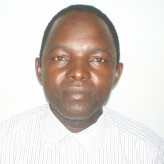By Peter Chege, CEO and Founder
The size of arable land in Kenya continues to shrink as the population grows, rainfall patterns become uncertain and deforestation increases as demand for firewood and charcoal grows. According to the Food and Agriculture Organization, only 20% of Kenya’s land area is suitable for agricultural production. The already scarce farmland is further subdivided as the population grows, resulting in smaller and overused farms, poor land quality and low food production.
Prolonged droughts and crop failures have also become common in Kenya due to unreliable rainfall. Experts say these are the effects of climate change and the situation is set to get worse as the years go by. These challenges call for a change in the way farming is done in Kenya. The Kenya Climate Innovation Center (KCIC) has been on the look for innovative technologies that have the potential to transform farming in Kenya and the technology by Mineral and Allied Limited is one of the successful companies supported by KCIC.
In 2002, I Peter Chege quit a lucrative job in a pharmaceutical firm to set up his company Mineral and Allied Limited. Initially the company manufactured animal feeds but switched to hydroponics when the quality of the grains used to make animal feeds declined.
When I realized the quality of grains used as raw materials for animal feeds was declining, while the cost of purchasing the grains was increasing, I sought to find out the problem. I found out the low quality of the grains was due to declining soil fertility, high cost of fertilizers and a change in rainfall patterns. The once regular rainfall patterns were now uncertain due to climate change, yet most farmers still relied on rain-fed agriculture to grow their grains. The cost of the fertilizers farmers used to replenish the soil was on an upward trajectory and therefore they used the fertilizers sparingly.
I then started looking for ways in which farmers would be able to meet the nutritional demand of their livestock at less cost. During the exercise, I came across the hydroponics technology being used in countries like Australia, Netherlands and Israel. Hydroponics is a technology that entails growing crops using mineral nutrient solutions in water without soil. However, the technology could not be easily deployed in Kenya as it relied on electricity to control temperatures inside the greenhouse, yet many farmers in the country have no access to electricity and those who have the cost is high. I set out on a journey to domesticate the hydroponics unit to make it usable by the average Kenyan farmer.
After a whole year of doing trials, I was able to make a hydroponics unit in which the temperatures were controlled without using electricity. Being an analytical chemist by profession, I was also able to make nutrient solutions that provided crops with sufficient nutrients.Although hydroponics relies primarily on water, the system is efficient in managing the resource. Studies have shown that hydroponics systems are at least 10 times more efficient in water usage as compared to field farming. A hydroponics unit of 144m2 can save up to 1000 litres of water per day.
With the domesticated hydroponics unit and the proper nutrient solutions,I was ready for the market. I wanted to sell the technology to as many Kenyan farmers as possible and hopefully they would regain confidence in farming. I had just started selling the hydroponics technology when joined the Kenya Climate Innovation Center family. Despite having the right technology to address some of the problems faced by farmers, I was struggling to set up his business. The financial system I was using did not work well, I needed help on marketing hydroponics, was looking for consumer financing options and additional capital to expand my business. I had also not patented my newly domesticated hydroponics technology. At KCIC I was assigned a mentor who would walk with me as I established my business. I also attending several trainings to help boost his business development skills and within a short time my business started picking up.
Since joining KCIC, I have seen drastic improvement in his business. Mineral and Allied had only 3 employees and would only install three hydroponics unit in a month. This has since changed and today I not only has 14 employees in Kenya but also 6 in Kampala, Uganda. ‘Sometime after joining KCIC, drastically the sales improved because they [KCIC] got the news out through Daily Nation and people came to learn more about the technology. The visibility courtesy of KCIC boosted my business not only in Kenya but also in Uganda…people came from there to learn about hydroponics and ask for installations.’ The company now installs about 15 hydroponics units each month and had installed about 500 units by October 2014. The revenue has also grown and the company has purchased a piece of land for expansion of their operations.
Over the last one year, Mineral and Allied encountered 10 greenhouses that had been abandoned because of the disease incidence in the vegetables that had been planted there. The10 greenhouses were converted to hydroponics units and they are now in use again. In addition, some farmers who had given up on farming because of depending on rain-fed agriculture are now back to the trade thanks to hydroponics. Am also happy that the company is creating employment especially for the community around me. The main hurdle that I now faces is accessing capital to take the business to the next level because most investors are still risk averse when it comes to investing in agriculture.
Since the initial media exposure by KCIC, Mineral and Allied has been featured on other media outlets like China TV.
Through supporting Mineral and Allied, KCIC has learnt that media exposure on print and television is effective in creating awareness on an innovative technology that addresses a common problem and is therefore likely to be adopted widely. It is also good to have the media exposure done after most of the company’s internal processes that were inadequate have been rectified and measures to handle increased demand for goods or services have been thought through or put in place.
‘When I joined KCIC in June 2013, I was not so conversant with business management. I was just a technical person who had started a business. With time I have learnt that …other than having an idea, implementation is something else… which needs expertise.’
Now with VIA water and Africa Funded, I expect to upscale and create impact to the world in areas of offering urban farmers a new method of growing crops in urban areas while using 80% less water with or without garden while using clean water. We will use walls, fence and roof tops as well as open places in urban areas. Am willing to share my idea and invite experts to work with, in areas of mechanical engineering, business management and strategic planning. Any connection with a Dutch company willing to invest in hydroponics in Africa will be very much appreciated.

